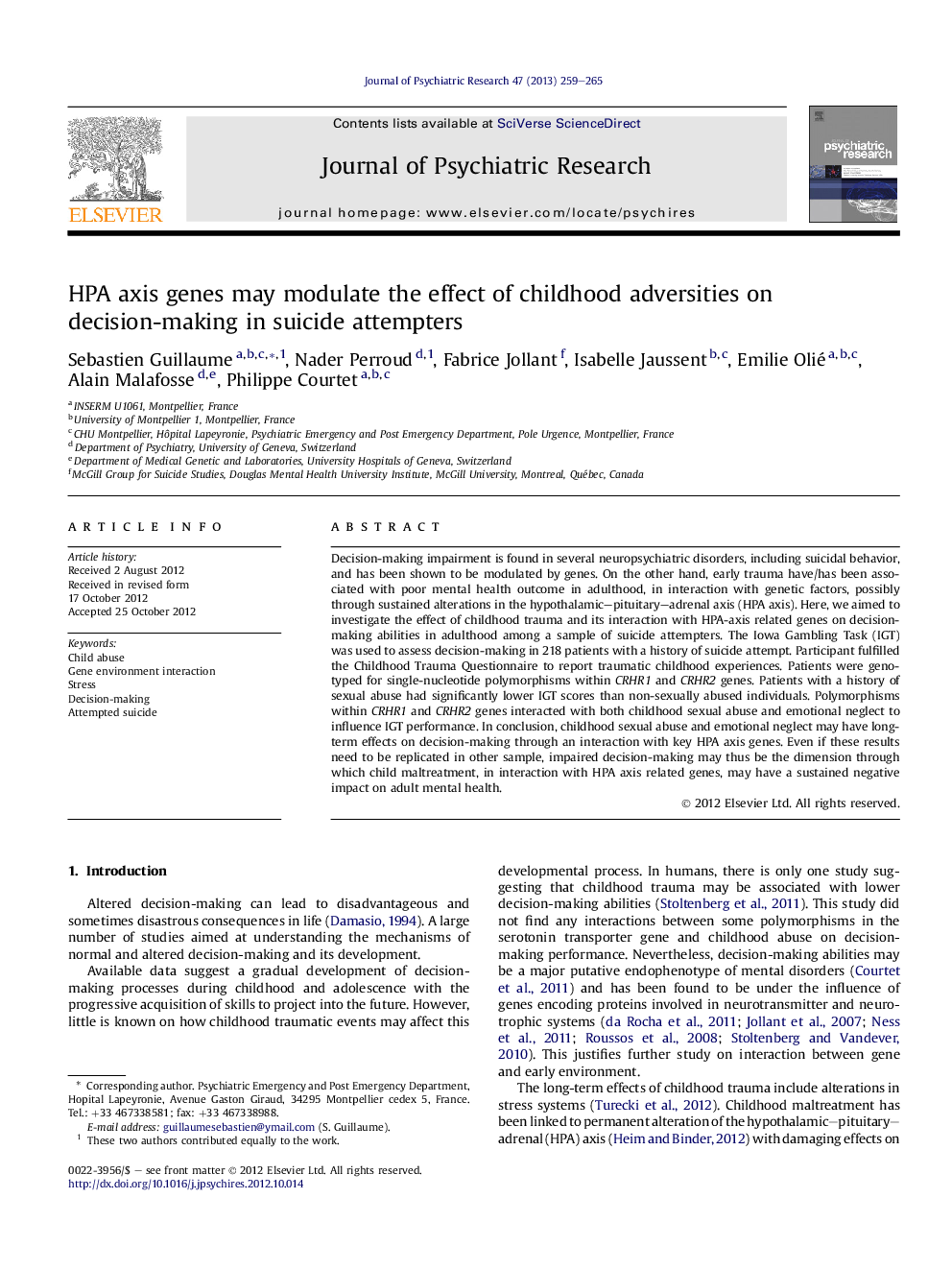| Article ID | Journal | Published Year | Pages | File Type |
|---|---|---|---|---|
| 10302503 | Journal of Psychiatric Research | 2013 | 7 Pages |
Abstract
Decision-making impairment is found in several neuropsychiatric disorders, including suicidal behavior, and has been shown to be modulated by genes. On the other hand, early trauma have/has been associated with poor mental health outcome in adulthood, in interaction with genetic factors, possibly through sustained alterations in the hypothalamic-pituitary-adrenal axis (HPA axis). Here, we aimed to investigate the effect of childhood trauma and its interaction with HPA-axis related genes on decision-making abilities in adulthood among a sample of suicide attempters. The Iowa Gambling Task (IGT) was used to assess decision-making in 218 patients with a history of suicide attempt. Participant fulfilled the Childhood Trauma Questionnaire to report traumatic childhood experiences. Patients were genotyped for single-nucleotide polymorphisms within CRHR1 and CRHR2 genes. Patients with a history of sexual abuse had significantly lower IGT scores than non-sexually abused individuals. Polymorphisms within CRHR1 and CRHR2 genes interacted with both childhood sexual abuse and emotional neglect to influence IGT performance. In conclusion, childhood sexual abuse and emotional neglect may have long-term effects on decision-making through an interaction with key HPA axis genes. Even if these results need to be replicated in other sample, impaired decision-making may thus be the dimension through which child maltreatment, in interaction with HPA axis related genes, may have a sustained negative impact on adult mental health.
Related Topics
Life Sciences
Neuroscience
Biological Psychiatry
Authors
Sebastien Guillaume, Nader Perroud, Fabrice Jollant, Isabelle Jaussent, Emilie Olié, Alain Malafosse, Philippe Courtet,
